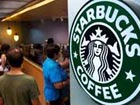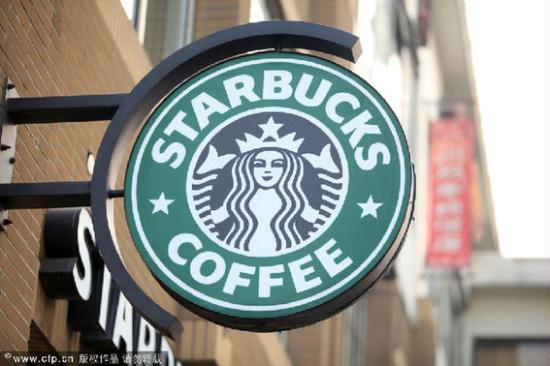| Videos | ? Latest |
|
? Feature | ? Sports | ? Your Videos |
Starbucks raises prices in China

 0 Comment(s)
0 Comment(s) Print
Print E-mail
CNTV, February 1, 2012
E-mail
CNTV, February 1, 2012
If you picked up your cup of joe from Starbucks this morning, you might have noticed that it cost a little more. Just when inflation was beginning to ease in China, the coffee chain says: not so for its business and raised the prices on certain types of its drinks sold in China - starting from this morning.
 |
|
A Starbucks cafe in Tianjin. [CFP] |
Starbucks China says the decision was prompted by surging raw materials and logistics costs in the country. CCTV reporter Yin Hang went to a Starbucks this afternoon in downtown Beijing to see how Chinese customers are responding to the hike.
While most Chinese are praising food and housing prices that have finally retreated to more normal levels, 29-year-old Beijinger, Chen Yu, woke up Tuesday, to found out that his daily refresher is going to cost him more.
Chen Yu, a Beijing resident, said, "Inflation has become part of our lives. We have no other solutions but to grin and bear higher prices. Maybe we can just wish that our incomes would climb higher too, but unfortunately it didn't."
The price increase, ranging from one to three yuan, or about 16 to 50 US cents, covers Starbucks products sold in China including espresso-based beverages, fresh-brewed coffees, and chocolate drinks.
The price of food items, tea drinks, and juice is unchanged.
The Seattle-based company, which runs about 500 stores on the Chinese mainland, said the decision took into consideration higher operation costs as well increasing competition.
While most customers are not as understanding, some can't be bothered to switch brands.
A Beijing resident said, "The price hike is not trivial when each cup of coffee is already quite high. I might buy fewer cups of coffee in the future but will not switch to other brands, because it's the only one nearby."
In the last three months alone, Starbucks has opened 48 branches on the mainland.
Starbucks decided to raise prices days after its CFO said its Chinese stores are more profitable than stores in its home market.
The coffee house chain is seeing returns double the investment made in its Chinese stores and is also enjoying strengthening brand perceptions in the country. It is presently in 41 cities across the nation.
The company's retail sales in China climbed by 28 percent year-on-year last quarter. And it has recorded growth topping 20 percent for six consecutive quarters, a process fuelled by organic expansion rather than price rises.





